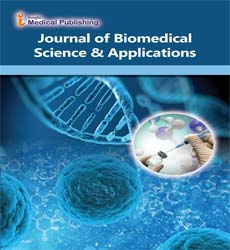History of Epidemiology: An Overview
Anthony Hanafiah*
Department of Medicine, Malaysia Medical Centre, Kuala Lumpur, Malaysia
- *Corresponding Author:
- Anthony Hanafiah
Department of Medicine,
Malaysia Medical Centre,
Kuala Lumpur,
Malaysia,
E-mail: anthony.hana@ppukm.ukm.edu.my
Received Date: January 03, 2022; Accepted Date: January 17, 2022; Published Date: January 24, 2022
Citation: Hanafiah A (2022) History of Epidemiology: An Overview. J Biomed Sci Appl Vol.5 No.6.27
About the Study
Epidemiology is the study and analysis of health and disease situations in specified populations, including their distribution, patterns, and factors. It is a cornerstone of public health, influencing policy and evidence-based practice by identifying disease risk factors and preventative healthcare priorities. Epidemiologists assist in study design, data collection, statistical analysis, interpretation, and dissemination (including peer review and occasional systematic review). Epidemiology has aided in the development of technique for clinical research, public health investigations, and, to a lesser extent, basic biological science research. Illness causation, transmission, outbreak investigation, disease surveillance, environmental epidemiology, forensic epidemiology, occupational epidemiology, screening, bio monitoring, and comparisons of treatment effects, such as in clinical trials, are all major fields of epidemiological study. Other scientific disciplines are used by epidemiologists, such as biology to better understand disease processes, statistics to make effective use of data and develop suitable findings, social sciences to better understand proximate and distal causes, and engineering to measure exposure. Epidemiology is derived from Greek epi 'on, among,' demos 'people, region,' and logos' study, speech, discourse,' implying that it exclusively pertains to human populations. However, despite the availability of the term "epizoology," the term is commonly used in studies of zoological populations (veterinary epidemiology), and it has also been applied to studies of plant populations (botanical or plant disease epidemiology). Hippocrates coined the terms "epidemic" and "endemic" to distinguish between diseases that "visit" a community (epidemic) and those that "reside inside" a population. The term "epidemiology" appears to have been coined in 1802 by the Spanish physician Villalba in his book Epidemiologa Espaola to characterize the study of epidemics. Epidemiologists also look into how diseases interact in a population, which is known as a syndemic.
History
Hippocrates, renowned as the "Father of Medicine," sought a logical explanation for illness, and he is credited with being the first to investigate the links between disease and environmental factors. An imbalance of the four humors, according to Hippocrates, causes disease in the human body (black bile, yellow bile, blood, and phlegm). To balance the body, the illness was treated by removing or adding the offending humour. Bloodletting and dieting were used in medicine as a result of this idea. He invented the phrases endemic (for diseases that are only present in certain places) and epidemic (for diseases that are only found in certain places) (for diseases that are seen at some times but not others). A doctor from Verona named Girolamo Fracastoro was the first to suggest a theory that these very minute, unseen particles that cause disease were living in the middle of the 16th century. They were said to be able to spread through the air, multiply on their own, and be destroyed by fire. He disputed Galen's miasma idea in this way (poison gas in sick people). He was the first to preach personal and environmental cleanliness to avoid sickness in his book De contagion and contagiosis morbis, published in 1543. Antoine van Leeuwenhoek's invention of a strong microscope in 1675 provided visible evidence of living particles, supporting the germ theory of disease. When Wu Youke (1582–1652) witnessed different epidemics rage around him between 1641 and 1644 during the Ming Dynasty, he formulated the theory that some diseases were caused by transmissible agents, which he dubbed Li Qi. Wen Yi Lun is considered the key etiological work that introduced the concept. His ideas were still being studied by WHO in 2004 when they looked into the SARS outbreak in the context of traditional Chinese medicine.
Open Access Journals
- Aquaculture & Veterinary Science
- Chemistry & Chemical Sciences
- Clinical Sciences
- Engineering
- General Science
- Genetics & Molecular Biology
- Health Care & Nursing
- Immunology & Microbiology
- Materials Science
- Mathematics & Physics
- Medical Sciences
- Neurology & Psychiatry
- Oncology & Cancer Science
- Pharmaceutical Sciences
